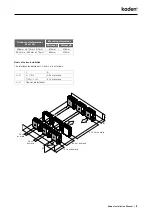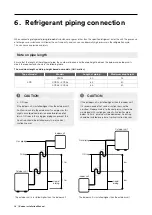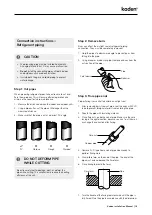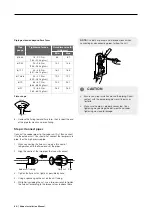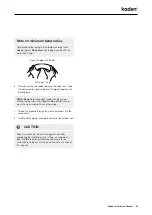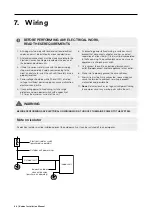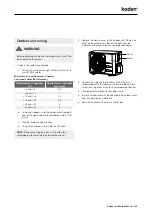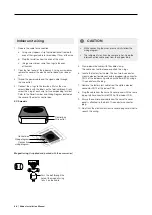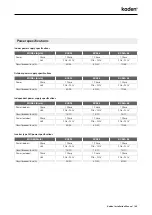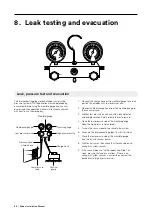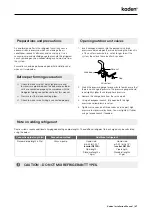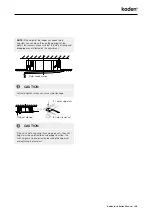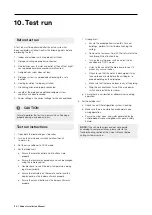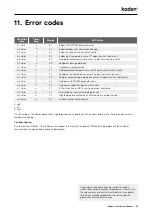
Kaden Installation Manual |
27
Preparations and precautions
Air and foreign matter in the refrigerant circuit can cause
abnormal rises in pressure, which can damage the air
conditioner, reduce its efficiency, and cause injury. Use a
vacuum pump and manifold gauge to evacuate the refrigerant
circuit, removing any non-condensible gas and moisture from
the system.
Evacuation should be performed upon initial installation and
when unit is relocated.
Before performing evacuation
✓
Check to make sure that both high-pressure and
low-pressure pipes between the indoor and outdoor
units are connected properly in accordance with the
Refrigerant piping connection section of this manual.
✓
Pressure test the interconnecting pipes.
✓
Check to make sure all wiring is connected properly.
Opening outdoor unit valves
1. Insert hexagonal wrench into the packed valve (high
pressure valve) and open the valve by turning the wrench in
a 1/4 counter clockwise turn. Listen for gas to exit the
system, then close the valve after 5 seconds.
2. Watch the pressure gauge for one minute to make sure that
there is no change in pressure. The pressure gauge should
read slightly higher than atmospheric pressure.
3. Remove the charge hose from the service port.
4. Using a hexagonal wrench, fully open both the high
pressure and low pressure valves.
5. Tighten valve caps on all three valves (service port, high
pressure, low pressure) by hand. You may tighten it further
using a torque wrench if needed.
Note on adding refrigerant
Some systems require additional charging depending on pipe lengths. The additional refrigerant to be charged can be calculated
using the below.
Connective pipe length (m)
Evacuation method
Additional refrigerant
Standard pipe length is 20m
Vacuum pump
Liquid side:
Ø
6.35 (
Ø
0.25")
Inverter R410A:
Pipe length -
Standard length x
15g/m
Liquid side:
Ø
9.52 (
Ø
0.375")
Inverter R410A:
Pipe length -
Standard length x
30g/m
CAUTION – DO NOT MIX REFRIGERANT TYPES.
Flare nut
Valve body
Valve stem
Cap





